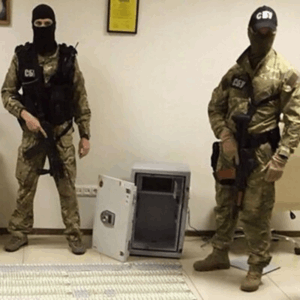
"We will protect your rights and inviolability of your honor and dignity!"
Head of criminal law practice
Expert in the field of criminal, administrative and civil law. Specializes in military crimes and crimes in the financial sector
EXCLUSION OF ELECTRONIC DOCUMENTS DURING THE SEARCH IN LAWS INFRINGES THE CONVENTION

In Kirdok and Others v. Turkey, the European Court of Human Rights unanimously ruled that there had been a violation of Article 8 (right to respect for private and family life). In the present case, the applicants, who are lawyers, complained about the confiscation of their electronic data by the courts for the purposes of prosecuting another lawyer.
The court found, in particular, that the seizure of the applicants' electronic data, which had been protected by the client's lawyer's professional secrecy, and the refusal to return or destroy them did not meet an urgent social need and were not necessary in a democratic society. The court also noted the lack of sufficient procedural guarantees in the law, which are interpreted and applied by the courts.
The applicants are lawyers. In 2011, the Istanbul Prosecutor's Office launched an investigation to identify and uncover secret channels of communication between Abdullah Ocalan and his former organization. . The police searched the latter's office together with the applicants. They made copies of all the data stored on the computer's hard drive shared by all the lawyers, as well as a USB flash drive owned by Ms. Hanbal. A representative of the Istanbul Bar Association and the applicant were present during the search.
The data seized by the police were placed in a sealed package. The applicants subsequently appealed against the decision of the jury as representatives and on their own behalf. In particular, they demanded the return or destruction of their digital data, claiming that the data did not belong to the client, that they were protected by legal secrecy and that they had been seized without any appropriate order. The prosecutor's office objected that since the data had not yet been deciphered, it was impossible to establish their exact owners. The jury rejected the applicants' complaint on the ground that the impugned order had been issued in accordance with the law and the relevant procedure.
In its judgment, the ECtHR stated that the applicants, who had not been prosecuted, had claimed in the courts that the seized electronic data had belonged to them and had been protected by professional secrecy against their client's lawyer. He also noted that in his search warrant, the juror had widely indicated the extent of the search of the premises, stating that the purpose of the operation was to "gather evidence and seize items", potentially proving that the suspect (US) had been involved. terrorist organization. The decision did not specify which specific items or documents were to be found at the addresses indicated, including at the applicants' law firm, or which evidence was relevant to the criminal investigation.
Thus, according to the order, the authorities responsible for the investigation could examine all the digital data stored in the applicants' offices without worrying that they were searching the premises of a law firm where documents concerning other clients could be kept.
In addition, the broad scope of the court order was reflected in how it was executed. Although a representative of the Istanbul Bar Association and the applicant were present during the search and the seized data were placed in a sealed package, no additional special measures were taken to protect them from interference with professional secrecy. Indeed, there was no mechanism for filtering electronic documents or data covered by professional secrecy, or any explicit prohibition on the removal of data covered by such confidentiality during a search. On the contrary, all data on the computer's hard drive and flash drive, shared by all lawyers working in the room, were deleted.
After the applicants requested the return of the electronic documents, relying on legal secrecy between the lawyers and their clients, the judicial authorities were obliged by law to promptly assess the seized data and return the data protected by such secrecy, or destroy them, depending on circumstances.
However, national law and practice were unclear as to the consequences of any non-compliance by the courts with this obligation. The jury finally refused to return or destroy the seized copies of the data, based on arguments that simply mentioned the legality of searches conducted in law firms, and did not respond to a specific allegation of a breach of confidentiality between lawyers and their clients. It appears that the jury implicitly accepted the grounds put forward by the prosecutor's office to justify the refusal to return the seized data, as the data had not been deciphered and it was therefore not possible to determine their exact owners.
The ECtHR concluded that such a ground for refusal was not only not explicitly provided for by law, but was also incompatible with the essence of professional secrecy, which protects information arising between lawyers and their clients. In any event, it could not be concluded that the examination of the applicants' request by the courts complied with the obligation to ensure particularly strict scrutiny of measures relating to data covered by legal professional secrecy.
There has accordingly been a violation of Article 8 of the Convention. In the absence of sufficient procedural guarantees in the relevant legislation to be interpreted and applied by the judicial authorities in the present case, the Court found that the complaints under Article 13 of the Convention covered the same grounds as the complaint under Article 8 of the Convention. The ECtHR ruled that Turkey should pay each applicant EUR 3,500 in respect of non-pecuniary damage and EUR 3,000 in total in respect of costs and expenses.
Calculate the price of assistance:
1 question
Have other lawyers handled your case?
2 question
Are you in Kyiv or Kyiv region?
3 question
Do you need legal assistance urgently?
Other articles on this topic:
call back
during the day




